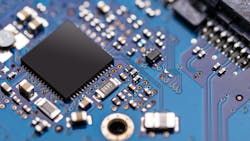Navigating plant downtime risks: Choosing the right computing infrastructure
In the dynamic landscape of industrial operations, the demand for computing power continues to surge alongside the increasing complexity of manufacturing processes. As businesses strive for higher efficiency and adaptability to meet agile manufacturing demands, the role of computing infrastructure is pivotal to staying competitive.
The modern industrial environment necessitates additional computing power to support various facets of operations, including process optimization, real-time analytics, and automation. Achieving these objectives is paramount for maintaining a competitive edge in an increasingly globalized market.
See also: AI and automation power self-managed warehouses
However, with this escalating need comes a rise in the risks of plant downtime, which can significantly hamper competitiveness and productivity and negate the cost savings of automation. There are critical considerations surrounding plant computing needs and inherent risks associated with the choice of computing infrastructure. The decision-making process extends beyond immediate requirements to encompass long-term strategic planning.
Business-grade components compared to Industrial PCs
Some manufacturers are using mass-produced commercial PC systems and additional GPU processing to reduce the costs of adding the CPU and RAM capacity needed to fuel this critical functionality.
See also: Webinar replay: New SEC Reporting Requirements and Your Cyber Defenses
While suitable for office environments, business-grade PCs lack the robustness and specialized features required for industrial settings. In contrast, IPCs are purpose-built to withstand the rigors of industrial use, offering these advantages:
- Industrial-friendly form factors: IPCs are available in various form factors tailored to industrial environments, ensuring compatibility and space efficiency.
- High-power processing: IPCs boast superior processing capabilities, enabling complex computations and rapid data analysis critical for modern manufacturing processes. IPC vendors also have standing hardware partnerships to deliver essential components frequently back ordered due to high demand, such as NVIDIA GPUs.
- Customization and quality control: IPCs are bespoke solutions that offer extensive customization options and adherence to rigorous quality control standards to mitigate the risk of hardware failures. IPCs are bespoke, made-to-order machines assembled and tested to meet application requirements before they ship.
- Robustness and reliability: Designed to endure harsh industrial conditions—including exposure to oil, gas, dust, vibration, heat and cold—IPCs prioritize reliability and longevity.
- Cybersecurity and integrated diagnostics: IPCs incorporate robust cybersecurity features and integrated diagnostics, enhancing system integrity and maximizing uptime.
- Pre-assembled and tested systems: Unlike business-grade PCs, which often require onsite assembly and configuration, IPCs are delivered as fully assembled and tested systems, minimizing deployment time, and reducing the potential for human error.
Risks of using business-grade PCs
A system failure in a modern manufacturing environment means production lines come to a standstill, causing increased costs and delays in order fulfillment, leading to financial losses and damaging customer relationships.
The cost of repairing or replacing these systems can be substantial in total downtime and direct cost, impacting the bottom line. Leveraging business-grade PCs may offer short-term cost savings and expedited delivery, but they present inherent risks and limitations:
- Increased complexity: The customization and assembly required for business-grade PCs to meet industrial requirements introduce complexity, elevating the risk of critical failures and subsequent plant downtime. IPC systems come fully assembled and can integrate the high-level processing power required for specific AI and simulation applications inherently.
- Challenges in GPU procurement: The unprecedented demand for consumer GPUs, driven by diverse industries such as gaming, cryptocurrency mining and data science, has created significant challenges for industrial applications reliant on advanced computing capabilities. The resulting shortages inflate prices and impede procurement timelines, hindering innovation and operational efficiency. There is a struggle to secure these critical components to scale operations on demand, not on the backordered schedule of a hardware vendor.
- Shortened hardware lifespans: Industrial conditions accelerate the wear and tear of business-grade hardware components, necessitating frequent replacements and incurring additional maintenance costs. IPC solutions for industrial applications have deployments measured with decades in mind, not months or years.
- Long-term costs vs. upfront savings: The cumulative costs associated with maintenance, downtime and hardware replacements outweigh the initial cost savings of business-grade PCs, underscoring the importance of prioritizing reliability and durability.
The choice of computing infrastructure is a critical determinant of operational resilience and competitiveness in industrial environments. While business-grade PCs may offer immediate benefits in terms of cost and flexibility, the long-term risks of downtime and maintenance expenses necessitate a strategic investment in Industrial PCs.
See also: Optimizing production through HMI and controller integration
By prioritizing reliability, robustness and scalability, businesses can mitigate the inherent dangers of plant downtime and position themselves for sustained success in an increasingly complex and demanding landscape.
About the Author

Kristen Quasey
Kristen Quasey is product manager, SIMATIC Industrial PC at Siemens, where she works with companies on plant-floor technology solutions.
